Tuesday, February 28 2017
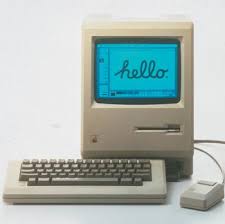 It’s human nature to become comfortable with what we know and what we surround ourselves with. My mom, bless her, never wanted anything to change. As a kid growing up that used to frustrate me. I was eager to explore new places and do new things. I’ve never really outgrown that, but I’ve begun to appreciate where my mother was coming from, too. I especially feel that way about technology. I was born long before computers were even created, never mind becoming an important part of all our lives. So, technology is a challenge for me. My husband bought our first Apple computer. At work I learned to use MS DOS – God help me, if I had to go back to that blank blue screen and remember all the commands I’d need to make something appear now, I’d be lost. So, maybe Windows was a good thing for all the complaining folk did. And, since I operate on a Mac, I love OS X and the endless menus. We no longer have to memorize the commands. We can just fish around reading menus until what we are looking for appears. But I still find myself groaning when an app on my phone gets updated and something I knew how to do disappears. Then I have to learn all over again. It’s human nature to become comfortable with what we know and what we surround ourselves with. My mom, bless her, never wanted anything to change. As a kid growing up that used to frustrate me. I was eager to explore new places and do new things. I’ve never really outgrown that, but I’ve begun to appreciate where my mother was coming from, too. I especially feel that way about technology. I was born long before computers were even created, never mind becoming an important part of all our lives. So, technology is a challenge for me. My husband bought our first Apple computer. At work I learned to use MS DOS – God help me, if I had to go back to that blank blue screen and remember all the commands I’d need to make something appear now, I’d be lost. So, maybe Windows was a good thing for all the complaining folk did. And, since I operate on a Mac, I love OS X and the endless menus. We no longer have to memorize the commands. We can just fish around reading menus until what we are looking for appears. But I still find myself groaning when an app on my phone gets updated and something I knew how to do disappears. Then I have to learn all over again.
 But just as the constant changes in technology bring good things along with the challenges, so does the world around us. When Eisenhower’s new Interstate Highway system got underway there was a lot of grumbling about the land the government had to take back, and then there was learning how to use it. My grandfather never did absorb the need to get up to speed on the entrance ramp and scared the bejeezus out of me when he stopped before entering the highway. But once we altered our behavior, and our expectations, the system became a part of our environment we now take for granted. All 47,000 plus miles of it. We like our little town just the way it’s always been, why do we need a parking garage? But once it’s built we wonder how we ever coped with hunting for illusive curbside spots. But just as the constant changes in technology bring good things along with the challenges, so does the world around us. When Eisenhower’s new Interstate Highway system got underway there was a lot of grumbling about the land the government had to take back, and then there was learning how to use it. My grandfather never did absorb the need to get up to speed on the entrance ramp and scared the bejeezus out of me when he stopped before entering the highway. But once we altered our behavior, and our expectations, the system became a part of our environment we now take for granted. All 47,000 plus miles of it. We like our little town just the way it’s always been, why do we need a parking garage? But once it’s built we wonder how we ever coped with hunting for illusive curbside spots.
 I moved into my little bungalow by the sea here in St Augustine just a month after back to back nor’easters pummeled the dunes on our beach. The waves breached the dunes and pushed into the Summerhaven river. Once breached more sand was pushed into the river on every high tide, eventually clogging the river. Wading birds and fish went elsewhere. Kayaking and oyster harvesting ceased. That change was not welcomed by those who’d lived here for years and they spent the next several years lobbying to have the river rehabilitated and the dunes rebuilt. They were up against the crew that felt Mother Nature should be left alone to do what she wants. No matter who won that argument, someone was not going to be happy. In the meantime, new to the area, I just enjoyed being able to walk onto the beach every day. Well, the restore-the-river folk won in the end and now it’s changing all over again. I moved into my little bungalow by the sea here in St Augustine just a month after back to back nor’easters pummeled the dunes on our beach. The waves breached the dunes and pushed into the Summerhaven river. Once breached more sand was pushed into the river on every high tide, eventually clogging the river. Wading birds and fish went elsewhere. Kayaking and oyster harvesting ceased. That change was not welcomed by those who’d lived here for years and they spent the next several years lobbying to have the river rehabilitated and the dunes rebuilt. They were up against the crew that felt Mother Nature should be left alone to do what she wants. No matter who won that argument, someone was not going to be happy. In the meantime, new to the area, I just enjoyed being able to walk onto the beach every day. Well, the restore-the-river folk won in the end and now it’s changing all over again.

The dunes are growing again and every day it’s a new challenge to figure out how to get onto the beach. I have no idea what it will look like when they’re done. Maybe that access to the beach will disappear. Scrambling down over high dunes is pretty easy, but climbing back up might be impossible. A man I only ever knew as John used to ride his bike down to the little cove and perch on the rocks above the beach to read. I’m not sure where he’d sit today as that beach is now ten feet under the new dune. I’m sure the ocean itself will have a lot to say about the final disposition of all those tons of sand, but like it or not, change is happening.


But I’ve decided to welcome the change. Not that I can stop it, but let’s be positive. At the moment, some enterprising folks salvaged some of the flotsam from Hurricane Matthew and built a new stairway with a railing at the other end of my road. I can always visit the beach there – at least until the next big storm moves those rocks and destroys the stairway. So, just like being willing to try out a smart phone and discovering it’s the best little gadget I’ve ever owned, perhaps the new access to the beach over the dunes will turn out to be awesome, too.
I had grown comfortable with the way it was before, but I just might love the changes even better. So, unlike my mom, I’m going to welcome changes in my life and rise to the challenge. After all, don’t they claim that challenging yourself is a way to keep your brain young?
Saturday, February 18 2017
The Round Robin topic for February: Description. What is your saturation point? What is not enough? How do you decide what to include and when to hold back to allow the reader to fill in the blanks? Do you ever skim description when reading a book? If so, what description are you most likely to skip?
Wow! This is an interesting topic and I can’t wait to read all these other authors’ take on the subject. It’s a hard question to answer, not just here for this Round Robin Blog, but every time I write a book.
 Just the right amount of description puts you right there in the scene, feeling the soft breeze of a moonlit night on the beach or the damp chill of a winter rain, hearing the rattle of keys dropped on a glass topped table, or the startling rustle of something unexpected moving behind you, smelling the choking pall of heavy smoke, or the enticing whiff of man’s cologne. Details are important for setting the scene and the mood. They also give the reader their first mental image of a character. Well used, they tell more than a character’s physical appearance or beauty. A man might have the physique of someone who worked and played hard. Or a woman might be the kind that turns a man’s head, but demands a no-nonsense attitude. I like that kind of description because it tells me more about the character than the details of their physical appearance and allows me to flesh them out to suit my vision of how they should look. A good story needs descriptive narrative otherwise it would come across like a police report. Consider the difference between ‘He picked up the phone and called her.’ With ‘His hand hovered over the receiver. He really didn’t want to talk to her just now. He sighed and picked up the phone.’ Obviously a lot more words, but also a lot more information than just the simple action of calling someone on the phone. Description can be packed into dialog as well. As in “get your clammy hands off me.” or “What’s not to like? She’s soft in all the right places and very willing.” And in action: If he scrambled down the embankment and into the culvert soaking his shoes, you know he wasn’t walking casually and there was water in the culvert without it actually being said. But description can be overdone, as well. Just the right amount of description puts you right there in the scene, feeling the soft breeze of a moonlit night on the beach or the damp chill of a winter rain, hearing the rattle of keys dropped on a glass topped table, or the startling rustle of something unexpected moving behind you, smelling the choking pall of heavy smoke, or the enticing whiff of man’s cologne. Details are important for setting the scene and the mood. They also give the reader their first mental image of a character. Well used, they tell more than a character’s physical appearance or beauty. A man might have the physique of someone who worked and played hard. Or a woman might be the kind that turns a man’s head, but demands a no-nonsense attitude. I like that kind of description because it tells me more about the character than the details of their physical appearance and allows me to flesh them out to suit my vision of how they should look. A good story needs descriptive narrative otherwise it would come across like a police report. Consider the difference between ‘He picked up the phone and called her.’ With ‘His hand hovered over the receiver. He really didn’t want to talk to her just now. He sighed and picked up the phone.’ Obviously a lot more words, but also a lot more information than just the simple action of calling someone on the phone. Description can be packed into dialog as well. As in “get your clammy hands off me.” or “What’s not to like? She’s soft in all the right places and very willing.” And in action: If he scrambled down the embankment and into the culvert soaking his shoes, you know he wasn’t walking casually and there was water in the culvert without it actually being said. But description can be overdone, as well.
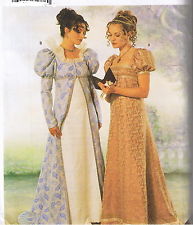 Once upon a time, I read a lot of Regency Romance, but as much as I loved the era, I got tired of reading detailed descriptions of how the heroine was dressed. I had no need to know if the dress had three flounces around the hem, or an apron of creamy satin or what kind of lace graced the neckline. Nor did I want a detailed outline of the hero’s smallclothes and that he was a master at tying a waterfall cravat. Perhaps that’s a key component of that genre – if so, that’s probably why I’ve stopped reading them. And I confess to skipping descriptive narrative that’s either too much or seems irrelevant. Years ago, when Outlander first came out, I devoured the book, read it several times, including all the descriptive stuff. But with each succeeding book, Diana Gabaldon has gone into more elaborate detail about things that have no impact on the plot or the characters. By book three I was skipping whole sections of her endless detail. By book five I stopped reading them at all, and that’s saying something for a reader who fell completely in love with Jamie Fraser and couldn’t get enough at the start. Once upon a time, I read a lot of Regency Romance, but as much as I loved the era, I got tired of reading detailed descriptions of how the heroine was dressed. I had no need to know if the dress had three flounces around the hem, or an apron of creamy satin or what kind of lace graced the neckline. Nor did I want a detailed outline of the hero’s smallclothes and that he was a master at tying a waterfall cravat. Perhaps that’s a key component of that genre – if so, that’s probably why I’ve stopped reading them. And I confess to skipping descriptive narrative that’s either too much or seems irrelevant. Years ago, when Outlander first came out, I devoured the book, read it several times, including all the descriptive stuff. But with each succeeding book, Diana Gabaldon has gone into more elaborate detail about things that have no impact on the plot or the characters. By book three I was skipping whole sections of her endless detail. By book five I stopped reading them at all, and that’s saying something for a reader who fell completely in love with Jamie Fraser and couldn’t get enough at the start.
I still enjoy romance – who doesn’t love a good love story! But today I read a far wider variety of genres, including action, adventure and stories with a patriotic or military theme. But even here, my eyes begin to glaze over when the author, either because they are in love with the paraphernalia, or because they’ve done a ton of research and just can’t bear to leave out any of the details they’ve so carefully researched. I want the story – the action – the characters either doing or surviving. I’d like to know they are adequately armed and have the latest in technology, that they are savvy about using the internet, or not, if they are well trained and physically fit, but I don’t need the minutiae. Consider Randy Wayne Wright’s Doc Ford series. We all know Ford was once a covert operator and now he’s a marine biologist, but Wright doesn’t bore me with detailed descriptions of the things Ford does in his lab or in endless backstory about his shadowy past. He just fills the pages with colorful characters, a setting that makes me want to go to Sanibel and tells an engaging story that draws the reader in.
 I think there are some details the reader does need to know. It might be important that a man is wearing cargo shorts rather than a suit or a uniform. Adding that they are faded and frayed might say something else about the character or the situation. If a character is wearing all black, including a balaclava that also tells you something about what he might be up to. And a heroine with 4 inch heels and a briefcase paints a definite picture. If the hero is in a gunfight, knowing he’s only got a handgun with an 8 round magazine and the villain is armed with an AK-47 that definitely sets the scene and puts the reader on the edge of their seat. But do we have to read the sales brochure or the military procurement description of the gun to get that picture? Or know where the heroine shops? Likewise, if a detective is entering a building that might have clues, a hostage, or a bad guy, details like suspicious noises, loss of electric power, too many places to hide, or shadows sets a compelling scene, but you don’t have to be offered a detailed floor plan or a lengthy discussion on the reason for the power outage. So, like I said, it’s a balancing act. How much to include, how much to leave out? I think there are some details the reader does need to know. It might be important that a man is wearing cargo shorts rather than a suit or a uniform. Adding that they are faded and frayed might say something else about the character or the situation. If a character is wearing all black, including a balaclava that also tells you something about what he might be up to. And a heroine with 4 inch heels and a briefcase paints a definite picture. If the hero is in a gunfight, knowing he’s only got a handgun with an 8 round magazine and the villain is armed with an AK-47 that definitely sets the scene and puts the reader on the edge of their seat. But do we have to read the sales brochure or the military procurement description of the gun to get that picture? Or know where the heroine shops? Likewise, if a detective is entering a building that might have clues, a hostage, or a bad guy, details like suspicious noises, loss of electric power, too many places to hide, or shadows sets a compelling scene, but you don’t have to be offered a detailed floor plan or a lengthy discussion on the reason for the power outage. So, like I said, it’s a balancing act. How much to include, how much to leave out?
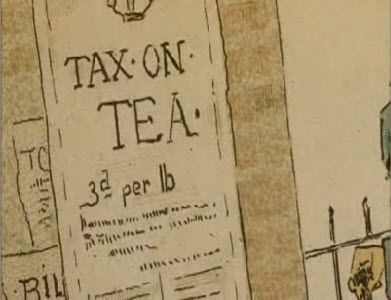 As an author, I sometimes leave out important details. I might assume a general knowledge of things that the average person perhaps does not have. Or I know my character’s backstory so well and in my eagerness to get to the action, I forget there are details of that backstory the reader needs to know to understand the character’s motivation. My upcoming release, Iain’s Plaid, is set during the months leading up to the start of the Revolutionary War. I admit it’s one of my favorite periods in American History, and I know a lot more about it than most people do, but I’m still surprised to discover that the only thing from that moment in history that most people are aware of is the Boston Tea Party, or the vague notion that it was all about taxes. My editor, God bless her, pointed out to me all the places her lack of knowledge left her wondering why my hero was doing what he was doing. Or what was going on historically. I had to find ways to weave that knowledge into the story without it sounding like a history lesson. As an author, I sometimes leave out important details. I might assume a general knowledge of things that the average person perhaps does not have. Or I know my character’s backstory so well and in my eagerness to get to the action, I forget there are details of that backstory the reader needs to know to understand the character’s motivation. My upcoming release, Iain’s Plaid, is set during the months leading up to the start of the Revolutionary War. I admit it’s one of my favorite periods in American History, and I know a lot more about it than most people do, but I’m still surprised to discover that the only thing from that moment in history that most people are aware of is the Boston Tea Party, or the vague notion that it was all about taxes. My editor, God bless her, pointed out to me all the places her lack of knowledge left her wondering why my hero was doing what he was doing. Or what was going on historically. I had to find ways to weave that knowledge into the story without it sounding like a history lesson.
Sometimes leaving out detailed description allows the reader to imagine the world in their own mind. Whatever things an individual reader might feel is heroic or compelling can be attributed to the hero or heroine of the story if they aren’t described in intimate detail, and the reader will be naturally partial to him or her just because of that very personal bias. There are some characteristics that are critical to the story, or the motivations behind the hero or heroine’s actions, but a lot of other stuff can be left to the readers’ imaginations. The same goes for the worlds they live in. Include the details that drive the story or impact the outcome, leave out the stuff that doesn’t influence the story or the characters in any meaningful way. Often those details are things the author likes but the story doesn’t really need.
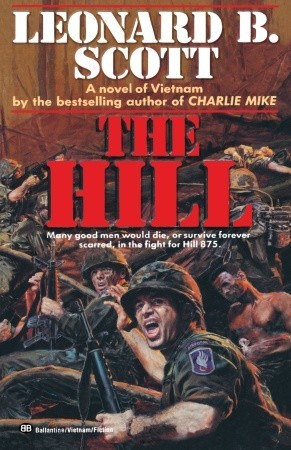 It also depends on what effect the author is going for. Leonard B. Scott wrote a book called The Hill. Set during the Vietnam War, his hero was a native American who had grown up loving the hills of his birth and Scott lets you into that love and respect before he drops the hero into the chaos of war and puts him on a hill that the US Army is determined to take regardless of the cost. But the added drama for that story was the Vietnamese general who loved the hill of his birthland. The very hill the Americans were determined to take. A hill the Viet Cong had riddled with tunnels and defenses. Seeing that battle from both points of view added a whole other layer of suspense and tragedy. The way that story was told let the reader into the hearts and souls of men from both sides of that bitter struggle and had a very different impact than had one only seen it from the American’s point of view. Sometimes an author wants the reader to be as surprised by the actions of the antagonist as the protagonist is, so you won’t know those details from the other side of the story. Personally, I think it adds to the suspense if you know something the protagonist doesn’t know, but the Perry Mason stories and the Sherlock Holmes mysteries are classic examples of the reader being as much in the dark as everyone else in the story other than Mason and Holmes until the final reveal. And those stories are classics. It also depends on what effect the author is going for. Leonard B. Scott wrote a book called The Hill. Set during the Vietnam War, his hero was a native American who had grown up loving the hills of his birth and Scott lets you into that love and respect before he drops the hero into the chaos of war and puts him on a hill that the US Army is determined to take regardless of the cost. But the added drama for that story was the Vietnamese general who loved the hill of his birthland. The very hill the Americans were determined to take. A hill the Viet Cong had riddled with tunnels and defenses. Seeing that battle from both points of view added a whole other layer of suspense and tragedy. The way that story was told let the reader into the hearts and souls of men from both sides of that bitter struggle and had a very different impact than had one only seen it from the American’s point of view. Sometimes an author wants the reader to be as surprised by the actions of the antagonist as the protagonist is, so you won’t know those details from the other side of the story. Personally, I think it adds to the suspense if you know something the protagonist doesn’t know, but the Perry Mason stories and the Sherlock Holmes mysteries are classic examples of the reader being as much in the dark as everyone else in the story other than Mason and Holmes until the final reveal. And those stories are classics.
I guess the bottom line for authors is to understand the impact you want your story to have, then find skillful ways of including the details that must be there to create that effect, while avoiding info dump and long narrative passages of back story that the reader doesn’t need to know and might get bored with. One axiom of writing I’ve heard a lot regarding whose point of view to be in is, “who has the most to lose?” That’s because being inside the head of the character with the most to lose gives the reader a chance to know more details about the stakes. An author needs to keep that in mind when deciding what descriptive information to include and what to leave out. What are the stakes? If the reader doesn’t know this detail, will it change his expectations? Conversely, if this detail makes no difference to the outcome, why is it there in the first place? If Diana Gabaldon had asked herself that question and realized it was just her fascination with all that deep research that compelled her to include way too much detail and kept her books to 300 or 400 pages instead of a thousand, I might still be reading her books.
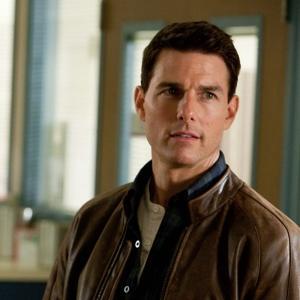 Which leads to my last observation for authors. KNOW YOUR READERS. Obviously given Gabaldon’s over the top success, most of her readers either love that kind of detail or are willing to bear with her. W.E.B. Griffin’s readers are similarly enthralled with his endless recital about arms, procedure, backstory and places. On the other side of the road are those who prefer the straight-forward Jack Reacher. It doesn’t get much simpler than carrying a toothbrush in his pocket and having no home or cell phone. Lee Child includes just enough detail about Jack so I knew the caliber of the man, his stature and military background, but the rest was up to my imagination as the plots unfolded, and when Tom Cruise was cast as Reacher for the movies, I was appalled. Arrogant, short and self-centered, Cruise couldn’t possibly live up to the larger-than-life man I had imbedded in my psyche. I probably would have been equally appalled if John Wayne had been cast as James Bond, but then, Ian Flemming had already endowed Bond with a fairly well fleshed out description. Which leads to my last observation for authors. KNOW YOUR READERS. Obviously given Gabaldon’s over the top success, most of her readers either love that kind of detail or are willing to bear with her. W.E.B. Griffin’s readers are similarly enthralled with his endless recital about arms, procedure, backstory and places. On the other side of the road are those who prefer the straight-forward Jack Reacher. It doesn’t get much simpler than carrying a toothbrush in his pocket and having no home or cell phone. Lee Child includes just enough detail about Jack so I knew the caliber of the man, his stature and military background, but the rest was up to my imagination as the plots unfolded, and when Tom Cruise was cast as Reacher for the movies, I was appalled. Arrogant, short and self-centered, Cruise couldn’t possibly live up to the larger-than-life man I had imbedded in my psyche. I probably would have been equally appalled if John Wayne had been cast as James Bond, but then, Ian Flemming had already endowed Bond with a fairly well fleshed out description.
So, now that you’ve borne with my ramblings on the topic, hop on over and check out what these authors have to say on the subject.
 Marci Baun http://www.marcibaun.com/blog/ Marci Baun http://www.marcibaun.com/blog/
Beverley Bateman http://beverleybateman.blogspot.ca/
Anne Stenhouse http://annestenhousenovelist.wordpress.com/
Dr. Bob Rich https://bobrich18.wordpress.com/2017/02/18/description
A.J. Maguire http://ajmaguire.wordpress.com/
Rachael Kosinski http://rachaelkosinski.weebly.com/
Diane Bator http://dbator.blogspot.ca/
Rhobin Courtright http://www.rhobinleecourtright.com
Wednesday, February 08 2017

Have Americans always been this uncivil to each other over the subject of politics?
In 2016 as the candidates began jockeying for supremacy within their own parties and laying the foundation for future attacks on the other party, Washington Post pundit, Dana Milbank, attributed the ugliness to the growing polarization of both parties. But then he added that the Republican Party had gone bonkers, throwing yet more fuel on the flames of partisan politics. When was the last time any of us had a civil conversation about how our government works or doesn’t with someone whose views are different than our own?
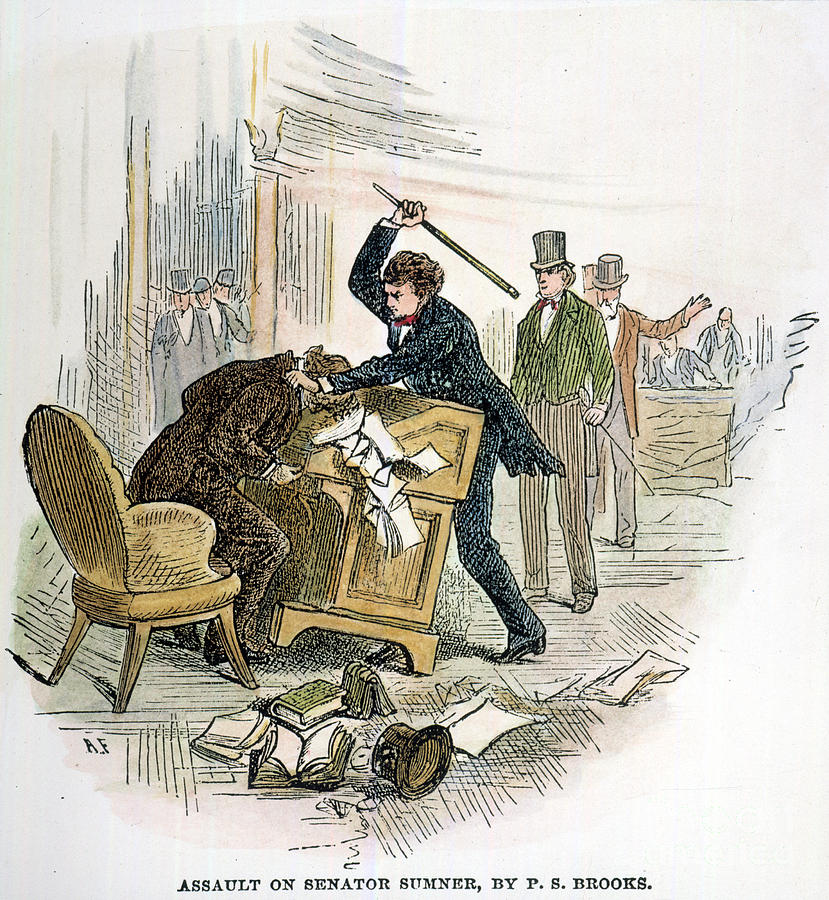 History seems refute the idea that today’s incivility is anything new or even that it has grown worse. In ancient Greece where democracy was born, politicians were rough, insulting and vulgar, including degrading sexual attacks. In the early days of our own democracy, as George Washington prepared to step down, opposing factions began their attacks in much the same manner. John Adams was referred to by opposing parties as “His Rotundity” mocking both his girth and his alleged aristocratic pretensions. The Federalists responded by calling the other party “a horrible sink of treason,” or an “odious conclave of tumult.” Surely more flowery language than we use today, but no less insulting and hateful. In the years leading up to the Civil War, Abraham Lincoln was referred to as “the Missing Link.” But then the incivility became physical when Representative, Preston Brooks beat Senator Charles Sumner on the Senate floor so severely with a cane that it took three years for Sumner to fully recover. While Hillary Clinton and Donald Trump did not strike each other physically, the same cannot be said for their followers. Especially after the unexpected result of the election sent Clinton’s followers into the streets under the guise of protest to riot, beat and loot. History seems refute the idea that today’s incivility is anything new or even that it has grown worse. In ancient Greece where democracy was born, politicians were rough, insulting and vulgar, including degrading sexual attacks. In the early days of our own democracy, as George Washington prepared to step down, opposing factions began their attacks in much the same manner. John Adams was referred to by opposing parties as “His Rotundity” mocking both his girth and his alleged aristocratic pretensions. The Federalists responded by calling the other party “a horrible sink of treason,” or an “odious conclave of tumult.” Surely more flowery language than we use today, but no less insulting and hateful. In the years leading up to the Civil War, Abraham Lincoln was referred to as “the Missing Link.” But then the incivility became physical when Representative, Preston Brooks beat Senator Charles Sumner on the Senate floor so severely with a cane that it took three years for Sumner to fully recover. While Hillary Clinton and Donald Trump did not strike each other physically, the same cannot be said for their followers. Especially after the unexpected result of the election sent Clinton’s followers into the streets under the guise of protest to riot, beat and loot.
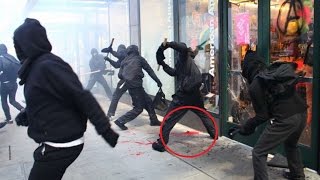 But those who stayed at home, dealing with either shock or elation continued to swamp social media with outrageous rants, facts blown all out of proportion and accusations that were not even facts to start with. And just when the angry rhetoric began to subside Donald Trump was inaugurated and it began all over again. Where, many of us begin to wonder, will this incivility end? And what is to become of our “melting pot” society? The Great American Ideal? But those who stayed at home, dealing with either shock or elation continued to swamp social media with outrageous rants, facts blown all out of proportion and accusations that were not even facts to start with. And just when the angry rhetoric began to subside Donald Trump was inaugurated and it began all over again. Where, many of us begin to wonder, will this incivility end? And what is to become of our “melting pot” society? The Great American Ideal?
Perhaps we should take some solace that our forefathers would not have been as surprised at today’s discourse as we might think. As James Madison wrote in Federalist 10, “citizens are motivated not by the rational study of ideas, empirical evidence, and cool debate over the issues, but by “interests and passions. Out of these arise the conflicting “factions” and “parties,” each seeking to protect and advance its interests, and all “inflamed . . . with mutual animosity, and rendered . . . much more disposed to vex and oppress each other, than to co-operate for their common good.” So perhaps this is the nature of democratic politics and to be expected and allowed.
 But then we turned our attention to sports, especially to the upcoming Super Bowl 51. For me, I have my favorite teams that I enjoy cheering for, but it’s still just a game. National security and peoples lives don’t hang in the balance so I try to just enjoy the game. Apparently there are those who take winning and losing more seriously. I am a fan of the New England Patriots – after all, I grew up in New England. And I am not a fan of Roger Goodell who seems to enjoy making power plays, fair or not, while overlooking some really bad behavior on the part of some in the sport and serious problems like head injuries. So I was looking forward to watching my team win and a man I disliked having to shake Brady’s hand and make nice. But the Falcons played a great game. A truly great game. Young but talented, they dominated the first 2/3s of the game and it wasn’t looking good for my team. I didn’t lose faith, though. It’s not wise to underestimate Tom Brady until the last minute of the game has ticked away and he came through. Against all predictions and the talking heads, he has made Super Bowl history in more ways than just how many rings he now wears. But then we turned our attention to sports, especially to the upcoming Super Bowl 51. For me, I have my favorite teams that I enjoy cheering for, but it’s still just a game. National security and peoples lives don’t hang in the balance so I try to just enjoy the game. Apparently there are those who take winning and losing more seriously. I am a fan of the New England Patriots – after all, I grew up in New England. And I am not a fan of Roger Goodell who seems to enjoy making power plays, fair or not, while overlooking some really bad behavior on the part of some in the sport and serious problems like head injuries. So I was looking forward to watching my team win and a man I disliked having to shake Brady’s hand and make nice. But the Falcons played a great game. A truly great game. Young but talented, they dominated the first 2/3s of the game and it wasn’t looking good for my team. I didn’t lose faith, though. It’s not wise to underestimate Tom Brady until the last minute of the game has ticked away and he came through. Against all predictions and the talking heads, he has made Super Bowl history in more ways than just how many rings he now wears.
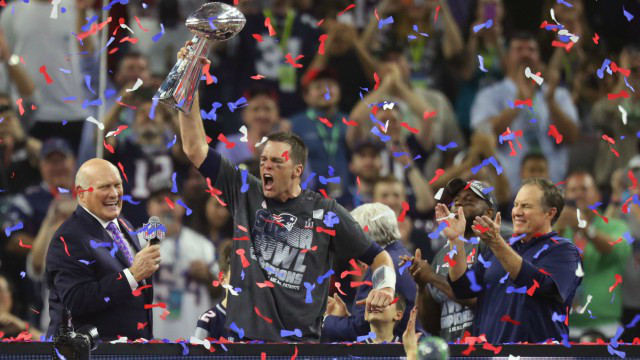 The Patriots happen to be on top for now. The team is deep with talent and Tom Brady is the first to give credit for his success to the men he plays with and relies on. But their day will pass, just as the Dallas Cowboys supremacy did, just as The Bruins with Bobby Orr, or the Celtics with Larry Bird, and another team will shine. It might even be that young team from Atlanta. Imagine my dismay, on Monday morning. On pages dedicated to the Patriots for and by their fans, haters jumped in to spew their bitterness and spite. Are we supposed to bring this level of incivility to everything we do? Why can’t we applaud other’s successes and admire their talent instead of trying to destroy them? We all need a few heroes in our lives to inspire us. Knocking them down seems so unproductive and unnecessary. I turned off Facebook after the election, but I never thought I’d feel like doing so just because the Patriots won another Super Bowl. The Patriots happen to be on top for now. The team is deep with talent and Tom Brady is the first to give credit for his success to the men he plays with and relies on. But their day will pass, just as the Dallas Cowboys supremacy did, just as The Bruins with Bobby Orr, or the Celtics with Larry Bird, and another team will shine. It might even be that young team from Atlanta. Imagine my dismay, on Monday morning. On pages dedicated to the Patriots for and by their fans, haters jumped in to spew their bitterness and spite. Are we supposed to bring this level of incivility to everything we do? Why can’t we applaud other’s successes and admire their talent instead of trying to destroy them? We all need a few heroes in our lives to inspire us. Knocking them down seems so unproductive and unnecessary. I turned off Facebook after the election, but I never thought I’d feel like doing so just because the Patriots won another Super Bowl.
Saturday, January 21 2017
Our topic for the January Round Robin Blog is: Everybody wants to write a book, but most do not. Writing is hard work. What got you started, and what helps you get through a complete story?
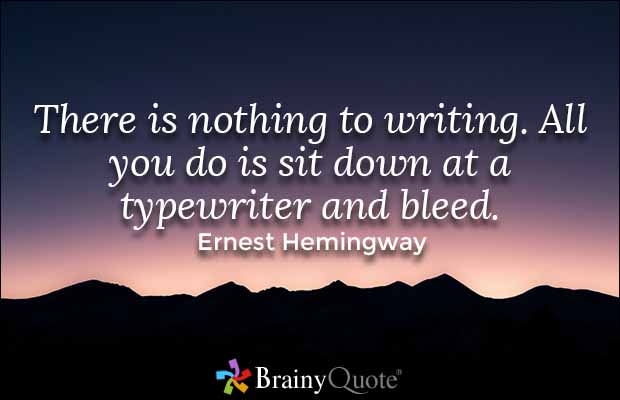 I think everyone has a story in them and we often hear people say they want to write a book, or they should write a book. But the truth is, writing really is hard work. At least, writing that is captivating, convincing and capable of drawing the reader in, and keeping them on the edge of their seat until the very last page. There are some who freely admit they can’t or don’t wish to write. Back in the day of correspondence that included picking up a pen and paper, I had friends who shrugged and said, "I’d never know what to say." But story telling is as old as mankind. Writing a book is story telling in print. I think everyone has a story in them and we often hear people say they want to write a book, or they should write a book. But the truth is, writing really is hard work. At least, writing that is captivating, convincing and capable of drawing the reader in, and keeping them on the edge of their seat until the very last page. There are some who freely admit they can’t or don’t wish to write. Back in the day of correspondence that included picking up a pen and paper, I had friends who shrugged and said, "I’d never know what to say." But story telling is as old as mankind. Writing a book is story telling in print.
Part of this month’s question was what got me started. Well, back in my junior year of high school, I was fortunate to be assigned to Mr. Fred Keye’s English class. I didn’t think I was fortunate on that first day, though. He began the class by informing us that we would lose five points for every misspelled word. I 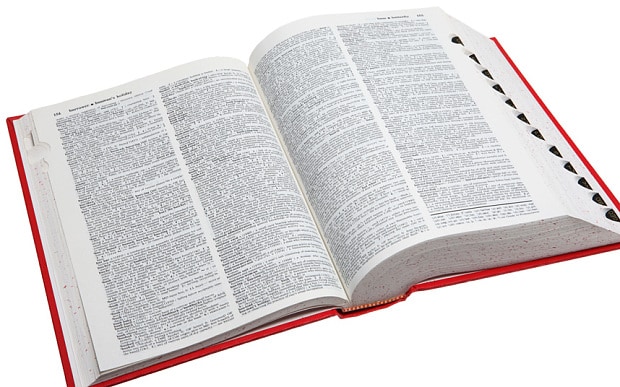 cringed. I was the worlds worst speller and those were the days when anything below a 70 was failing. He threw us a lifeline by suggesting that he expected us to keep our dictionaries on our desks and referring to them when we didn’t know how to spell a word. Even during a test. That was the beginning of my fascination with vocabulary. You would be amazed at the wonderful things you can find in a dictionary. cringed. I was the worlds worst speller and those were the days when anything below a 70 was failing. He threw us a lifeline by suggesting that he expected us to keep our dictionaries on our desks and referring to them when we didn’t know how to spell a word. Even during a test. That was the beginning of my fascination with vocabulary. You would be amazed at the wonderful things you can find in a dictionary.
Mr. Keye’s next challenge was to write 500 words on something you could smell. OMG? What 500 words? Was he kidding? The assignment seemed impossible. But as it turned out, it wasn’t. When I stopped gasping and put my mind to the task, I ended up with 500 words about the smell of sheets dried on a clothesline –  something most kids today have no idea what they are missing. Climbing into a bed my mom had just made up fresh was something I loved. I got an A+ on that very first assignment and every word was correctly spelled because that was what had been demanded of me. something most kids today have no idea what they are missing. Climbing into a bed my mom had just made up fresh was something I loved. I got an A+ on that very first assignment and every word was correctly spelled because that was what had been demanded of me.
Learning to write well is a lot like that assignment. I had something to say and I’d been given the tools to do it well. Writing a book is very similar, just a whole lot more than one night’s assignment in high school English. When I embarked on my first novel, I didn’t have the tools I needed. It’s written in pencil on yellow lined paper in a file somewhere, but I have no inclination to ever revisit it because I know how much I’ve grown as a writer over the years. And one thing I’ve found along the way is  writers are the most generous of people in sharing the things they’ve learned from folk who came before them. Paying it Forward is alive and well in the world of authors. There are dozens of daily or weekly blogs that have terrific posts on the nitty gritty of writing. You can find conferences all over the country that feature workshops on “how to.” There are also hundreds of craft books from the essential Elements of Style, to character development, plotting, dialog, and books focused on specific genres. writers are the most generous of people in sharing the things they’ve learned from folk who came before them. Paying it Forward is alive and well in the world of authors. There are dozens of daily or weekly blogs that have terrific posts on the nitty gritty of writing. You can find conferences all over the country that feature workshops on “how to.” There are also hundreds of craft books from the essential Elements of Style, to character development, plotting, dialog, and books focused on specific genres.
So, now it’s just a matter of finding the time and discipline to write the story that’s in your soul, and if you end up enjoying it, all the stories that your busy imagination can come up with. Some folk are what we call Plotters and others, like me, are Pantsers. The plotters create detailed outlines, story-boards, and fully developed synopses before they begin writing the actual book. Pantsers generally have a good idea where they are going, but the road map could be nothing more than an image in their mind, a stack of index cards with plot points and ideas, or a file, like I have, filled with snatches of dialog, scenes and important turning points. I also start with a very detailed biography of my main characters which means I know my hero, heroine, protagonist and antagonist so well that once I put them in a situation, I don’t have to wonder how they are going to react, although I admit they sometimes surprise me and say things I never imagined coming out of their mouths.
As for th e “What helps me get through a complete story?” That depends. I’m traditionally published and when I’ve already sold the story, I have a deadline and that tends to keep me focused on finishing. But when I’ve created wonderful characters I love, but have put in jeopardy, I am impelled to finish because I want them to have a happy ever after. But the most important word here is DISCIPLINE. I have to want to finish, for whatever reason. Then I have to find the personal discipline to put aside the time, turn off all the distractions (including social media) close the door to my library and as the Nike people like to say, Just Do It! e “What helps me get through a complete story?” That depends. I’m traditionally published and when I’ve already sold the story, I have a deadline and that tends to keep me focused on finishing. But when I’ve created wonderful characters I love, but have put in jeopardy, I am impelled to finish because I want them to have a happy ever after. But the most important word here is DISCIPLINE. I have to want to finish, for whatever reason. Then I have to find the personal discipline to put aside the time, turn off all the distractions (including social media) close the door to my library and as the Nike people like to say, Just Do It!
What to know what inspired other writers and how they get the job done? Hop on over to these sites and read their posts.
Margaret Fieland http://margaretfieland.wordpress.com
Heather Haven http://heatherhavenstories.com/blog/
Dr. Bob Rich http://wp.me/p3Xihq-SK
Connie Vines http://mizging.blogspot.com/
Victoria Chatham http://victoriachatham.blogspot.ca
Helena Fairfax http://www.helenafairfax.com
Beverley Bateman http://beverleybateman.blogspot.ca/
Marci Baun http://www.marcibaun.com/blog/
Judith Copek http://lynx-sis.blogspot.com/
Rachael Kosinski http://rachaelkosinski.weebly.com/
Diane Bator http://dbator.blogspot.ca/
A.J. Maguire http://ajmaguire.wordpress.com/
Rhobin Courtright http://www.rhobinleecourtright.com
Tuesday, January 17 2017
  It's been one of those days . . . like for about a week now. You know the kind of day, I'm sure. Ever heard the joke about the woman who decided to clean the kitchen and came across an unpaid bill in a pile of stuff shoved into the corner of the counter? She decided to pay it straight away because it was already late. She heads for her desk and the checkbook, but discovers the last check was written out on Sunday for the church offering. So, she digs through the closet for the box with replacement checks, but it's empty. Then she remembers the new checks were in yesterday's mail which she left in the car. So out the garage she goes. Yesterday's pile of mail is still sitting right on the front seat where she left it. But so are three empty water bottles. She grabs the bottles and heads to the recycling bin. But the bin it out by the curb awaiting collection. When she gets to the curb, the recyclables have not been picked up yet, but the rubbish has. So she drags the rubbish barrel back into the garage and hunts for a replacement plastic liner. But the box is empty. Her husband has another box in the basement, so back to the house, down the stairs and to hubby's bench. She pulls a new plastic rubbish liner out of the box and returns to the stairs, where she decides to grab the half full paint can and take it back out the garage. The shelf where the paint should go is soaking wet. What? Where did the water come from? Wait - that's not water. She sniffs her fingers. It's not paint thinner. Not water either. She's not sure what it is, so she hustles back to the kitchen to get the spray cleaner and some paper towels. But the towel dispenser is empty. And the new package of paper towels is still in the trunk of her car. Back out to the car, lug the paper towels, and while she's at it, the giant on-sale package of toilet paper, plus a box of bath soap, also on sale. She deposits the paper towels on the counter and heads for the linen closet to store the TP and bath soap. The linen closet it open and she remembers that she meant to change the sheets on the kids beds. So, after stowing her purchases, she finds two sets of sheets and matching pillow cases and heads to the kids room. Turns out crossing the floor to get to their beds might be dangerous to her health so she leaves the sheets on the corner of a dresser and promises to make up the beds after the kids get home from school and clean up their room. By now she's It's been one of those days . . . like for about a week now. You know the kind of day, I'm sure. Ever heard the joke about the woman who decided to clean the kitchen and came across an unpaid bill in a pile of stuff shoved into the corner of the counter? She decided to pay it straight away because it was already late. She heads for her desk and the checkbook, but discovers the last check was written out on Sunday for the church offering. So, she digs through the closet for the box with replacement checks, but it's empty. Then she remembers the new checks were in yesterday's mail which she left in the car. So out the garage she goes. Yesterday's pile of mail is still sitting right on the front seat where she left it. But so are three empty water bottles. She grabs the bottles and heads to the recycling bin. But the bin it out by the curb awaiting collection. When she gets to the curb, the recyclables have not been picked up yet, but the rubbish has. So she drags the rubbish barrel back into the garage and hunts for a replacement plastic liner. But the box is empty. Her husband has another box in the basement, so back to the house, down the stairs and to hubby's bench. She pulls a new plastic rubbish liner out of the box and returns to the stairs, where she decides to grab the half full paint can and take it back out the garage. The shelf where the paint should go is soaking wet. What? Where did the water come from? Wait - that's not water. She sniffs her fingers. It's not paint thinner. Not water either. She's not sure what it is, so she hustles back to the kitchen to get the spray cleaner and some paper towels. But the towel dispenser is empty. And the new package of paper towels is still in the trunk of her car. Back out to the car, lug the paper towels, and while she's at it, the giant on-sale package of toilet paper, plus a box of bath soap, also on sale. She deposits the paper towels on the counter and heads for the linen closet to store the TP and bath soap. The linen closet it open and she remembers that she meant to change the sheets on the kids beds. So, after stowing her purchases, she finds two sets of sheets and matching pillow cases and heads to the kids room. Turns out crossing the floor to get to their beds might be dangerous to her health so she leaves the sheets on the corner of a dresser and promises to make up the beds after the kids get home from school and clean up their room. By now she's  exhausted. Time for a cup of coffee. As she sits with her hands wrapped about the steaming mug she realizes she's been on the go all morning, but the kitchen is still not cleaned up, the bill has not been paid, the mail is still in her car, the shelf in the garage is still wet with unknown substances and the rubbish barrel is sitting in the driveway without a new liner. How can she possibly have been so busy and yet gotten nothing done? exhausted. Time for a cup of coffee. As she sits with her hands wrapped about the steaming mug she realizes she's been on the go all morning, but the kitchen is still not cleaned up, the bill has not been paid, the mail is still in her car, the shelf in the garage is still wet with unknown substances and the rubbish barrel is sitting in the driveway without a new liner. How can she possibly have been so busy and yet gotten nothing done?
Well, that's my day. After spending the last two weeks getting two newsletter's out, my own and one for my writer's chapter, sorting through piles of my father's paperwork and getting payments scheduled for his care in the nursing home, trying to get both my own and my father's brokerage accounts unrestricted (due to a letter I need to sign and return, but which hasn't yet been sent to me) so I can place a couple trades, I had planned to get back to my work in progress this week. It's been so long since I actually worked on it, I spent yesterday catching up to where I stopped writing. And today was supposed to be . . . well maybe tomorrow . . .
Tuesday, January 10 2017
 For the most part, I don’t care for reality TV, but I make an exception for Dancing With the Stars. But I admit I don’t pay close attention to all the drama between dances. Two seasons ago, one contestant stood out. Noah Galloway, and perhaps I should have been absorbing the drama. He didn’t win, but making it to the finals was no mean achievement considering he was a warrior who had lost an arm and a leg to an IED in Iraq. In spite of his injuries, he was a joy to watch on the dance floor. And then there was his heartwarming proposal to his sweetheart. For the most part, I don’t care for reality TV, but I make an exception for Dancing With the Stars. But I admit I don’t pay close attention to all the drama between dances. Two seasons ago, one contestant stood out. Noah Galloway, and perhaps I should have been absorbing the drama. He didn’t win, but making it to the finals was no mean achievement considering he was a warrior who had lost an arm and a leg to an IED in Iraq. In spite of his injuries, he was a joy to watch on the dance floor. And then there was his heartwarming proposal to his sweetheart.
Needless to say, when I saw that he had written a book about his journey from dedicated warrior to severely injured man struggling with depression and a new normal, to the man we saw on TV, I wanted to read it. My daughter dropped Living With No Excuses onto my Kindle for Christmas and I couldn’t wait to get started.
Perhaps I wouldn’t have been so let down by Noah’s unflinchingly honest story if I was not a romance author, I would have been able to applaud Noah’s achievements without wishing he had been a better, more caring husband. I do like my happy endings. But it’s more than that. I enjoy cheering on two people, real or imaginary, who love each other and have to find a way to make that love work through challenges that put that love on the line. I especially like it when they succeed. Noah did not.
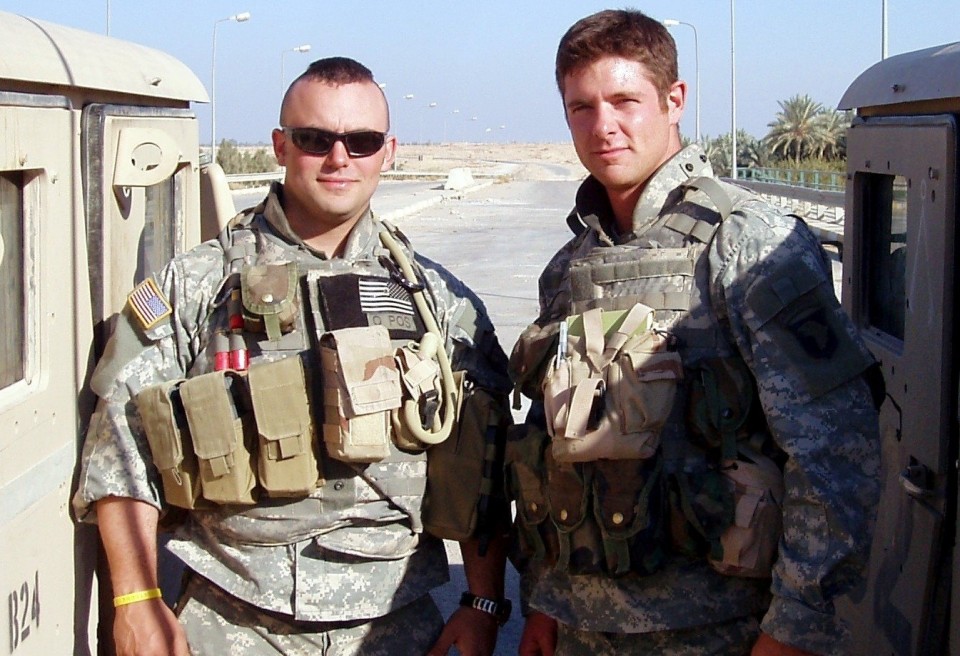 His first marriage was on the rocks before his injuries, partly due to the stress of his military deployments but even more due to his selfish and single-minded devotion to being a warrior. He honestly admits to letting go of that relationship, often citing how young they were when they married. But unless he left a lot out of the telling, he didn’t really put much effort into being a good husband and making his marriage work. He was more focused on loving his job as a soldier. He says more about loving his life as a soldier than he does about loving his wife. Perhaps by the time he wrote this memoir, he no longer remembered loving her. His first marriage was on the rocks before his injuries, partly due to the stress of his military deployments but even more due to his selfish and single-minded devotion to being a warrior. He honestly admits to letting go of that relationship, often citing how young they were when they married. But unless he left a lot out of the telling, he didn’t really put much effort into being a good husband and making his marriage work. He was more focused on loving his job as a soldier. He says more about loving his life as a soldier than he does about loving his wife. Perhaps by the time he wrote this memoir, he no longer remembered loving her.
After his injuries, and even after he’d begun to heal and find himself again he struggled a lot with depression – who wouldn’t given the extent of his injuries and the cataclysmic changes that brought to his life doing what he loved? But in the midst of that he reconnected with a friend from high school and that turned into a love affair and then marriage. Another caring woman who gave Noah an incredible amount of love and support during very difficult times.
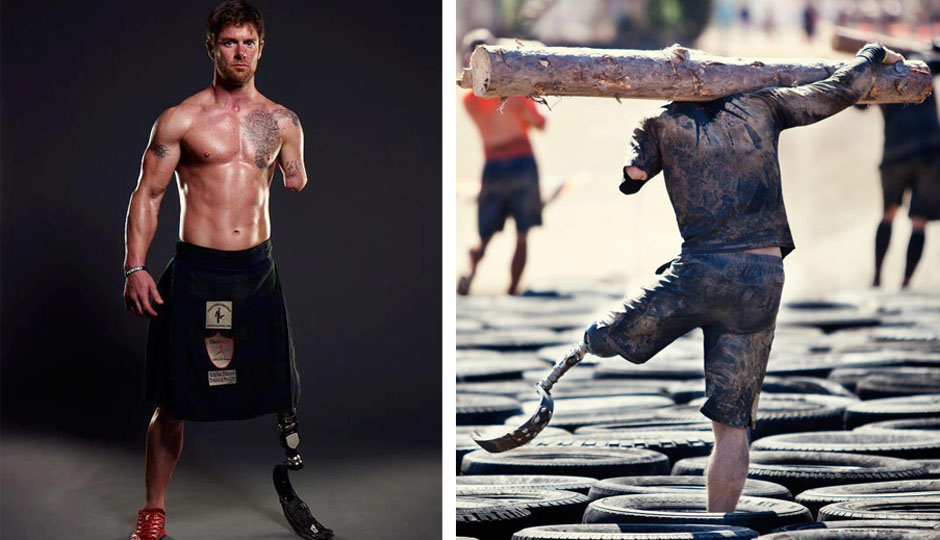 And yet, he had found another single-minded focus – and again it was not his wife or their marriage. It was in competition to prove he could still cut it as an athlete. Competition after competition, race after race, and he never mentions how his wife and chief supporter felt about the time he spent away from the family, both competing and encouraging other athletes with disabilities. Nor does he mention anything he did or tried to do, to keep their marriage healthy and strong. Once again, he was selfishly focused on being better with each race or each event and neglecting to be a good husband. Being in a relationship requires work, caring and dedication. I am not minimizing the effects of depression, but it seems, from Noah’s own account, that he did very little to mend the rifts that appeared in his marriage and eventually that failed just like the first. He didn’t have youth to blame this time. And yet, he had found another single-minded focus – and again it was not his wife or their marriage. It was in competition to prove he could still cut it as an athlete. Competition after competition, race after race, and he never mentions how his wife and chief supporter felt about the time he spent away from the family, both competing and encouraging other athletes with disabilities. Nor does he mention anything he did or tried to do, to keep their marriage healthy and strong. Once again, he was selfishly focused on being better with each race or each event and neglecting to be a good husband. Being in a relationship requires work, caring and dedication. I am not minimizing the effects of depression, but it seems, from Noah’s own account, that he did very little to mend the rifts that appeared in his marriage and eventually that failed just like the first. He didn’t have youth to blame this time.
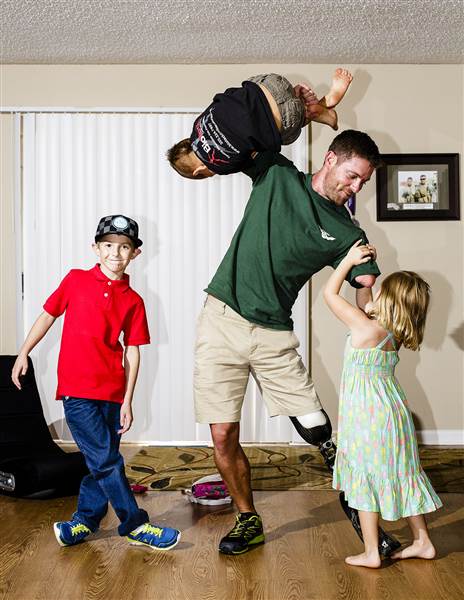 At this point I am wondering why Noah thought that embarking on yet another relationship with another wonderfully loving and supportive woman was fair to either of them if he wasn’t going to be willing to give at least as much as he got. He went down on one knee on national television and proposed to this woman in a wonderfully heartwarming moment. And one is rejoicing that finally, Noah, who has been through so much loss, is going to have his happy ever after. How quickly that hope is dashed. When his fiancé quite normally expects to have children and Noah has always loved his role as a dad, it’s kind of shocking when he says no. He has three kids, one from the first marriage and two from the second. He admits that he loves his children and they are an amazing and wonderful part of his life. And yet, he would deny the woman he loves the chance to experience the wonder of carrying a child and becoming a mom. To me that was the deal breaker. At this point I am wondering why Noah thought that embarking on yet another relationship with another wonderfully loving and supportive woman was fair to either of them if he wasn’t going to be willing to give at least as much as he got. He went down on one knee on national television and proposed to this woman in a wonderfully heartwarming moment. And one is rejoicing that finally, Noah, who has been through so much loss, is going to have his happy ever after. How quickly that hope is dashed. When his fiancé quite normally expects to have children and Noah has always loved his role as a dad, it’s kind of shocking when he says no. He has three kids, one from the first marriage and two from the second. He admits that he loves his children and they are an amazing and wonderful part of his life. And yet, he would deny the woman he loves the chance to experience the wonder of carrying a child and becoming a mom. To me that was the deal breaker.
Noah is an amazing man. He’s come through an ordeal that few can even imagine. He’s rebuilt himself and he is an inspiration to thousands. And yet, he is so focused on himself and what he wants that he would not give the woman he loved a child of her own. How can I admire the hero would won’t give anything in his power to the woman he loves? Where is her happy ever after?
Reading Noah's story is an amazing journey. He struggled and fought his way through devastating injury, dozens of surgeries, months of rehabilitation and therapy, years of depression, failed relationships and so much we’ll never know or understand. He is a remarkable man and an inspiration to anyone who has their own mountain to climb. But in spite of all that, he disappointed me. Perhaps I was expecting too much.
 Living with No Excuses: The Remarkable Rebirth of an American Soldier Living with No Excuses: The Remarkable Rebirth of an American Soldier
Military hero and beloved Dancing with the Stars alum Noah Galloway shares his life story, and how losing his arm and leg in combat forced him to relearn how to live--and live to the fullest.
Inspirational, humorous, and thought provoking, Noah Galloway's LIVING WITH NO EXCUSES sheds light on his upbringing in rural Alabama, his military experience, and the battle he faced to overcome losing two limbs during Operation Iraqi Freedom. From reliving the early days of life to his acceptance of his "new normal" after losing his arm and leg in combat, Noah reveals his ambition to succeed against all odds.
Noah's gripping story is a shining example that with laughter, and the right amount of perspective, you can tackle anything. Whether it be overcoming injury, conquering the Dancing with the Stars ballroom, or taking the next steps forward in life with his young family - Noah demonstrates how to live life to the fullest, with no excuses.
Tuesday, January 03 2017
 It’s that time of year again . . . Are you going to make resolutions? Or have you decided to just move forward with a vague idea of being a better you this year? It’s that time of year again . . . Are you going to make resolutions? Or have you decided to just move forward with a vague idea of being a better you this year?
I always make them, and occasionally I’ve actually kept one, but far more often, I’m as bad as the next guy, and it’s history before January is even over. It’s like my frequent promises to lose weight – it always seems so easy while I’m driving in the car, or stretched out in bed considering the topic. But the next time I’m at Publix, there is always at least two or three things that have no place on anyone’s diet shouting my name. Okay, the forbidden food isn’t really shouting, but my psyche sure is. It would be a lot easier if giving something you love up had immediate results – or at least a sign you can see that it’s doing the job you were hoping for. But unfortunately that isn’t how weight loss works – at least for me. I can go three weeks before I see even a half pound melt away. And it continues that way. Which is why I get discouraged and don’t follow through.
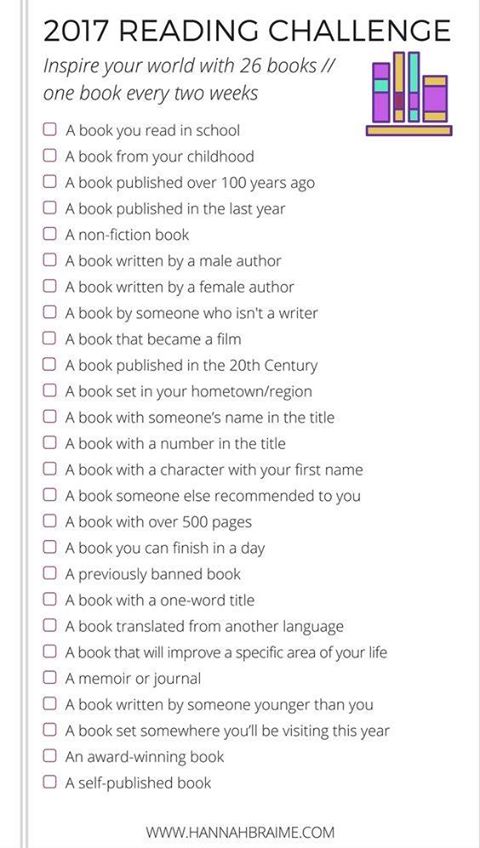 Over Christmas, after listening to my very talented granddaughters play two beautiful pieces on their violins, I mentioned that I’d thought about learning to play now that I’m retired and have more time – in between writing more books that is. My son commented that the best way to make sure I failed was to not even give it a go. So maybe I will consider it seriously this year. But it’s not a resolution. I walked a thousand miles last year according to my Fitbit – maybe I should try for 1,500 this year? Or maybe I should sign up for a water aerobics program? I’m still trying to decide. Over Christmas, after listening to my very talented granddaughters play two beautiful pieces on their violins, I mentioned that I’d thought about learning to play now that I’m retired and have more time – in between writing more books that is. My son commented that the best way to make sure I failed was to not even give it a go. So maybe I will consider it seriously this year. But it’s not a resolution. I walked a thousand miles last year according to my Fitbit – maybe I should try for 1,500 this year? Or maybe I should sign up for a water aerobics program? I’m still trying to decide.
But then I saw a list on FB about books to read this year. Not just books that catch my eye - the kind of books I always read - but others that stretch my envelope and broaden my knowledge. So, I’m definitely going to make that list a resolution. Along with writing another book for my series and finally getting down to writing a story that’s been cooking in my brain for some time.
So, what about you? Do you make resolutions? If so, how are you planning to challenge yourself this year? And definitely don’t give up on being a better you. Our world needs a whole lot of better YOUs. Be kinder. Be gentler. Be more accepting. Be more open to differing opinions and beliefs. Be more loving. Be more generous. I’m going to open up that gratitude book of mine and be grateful for the discipline to be a better me. Happy New Year.

Saturday, December 17 2016
 Prologue and Epilogue. Do they have a use? Should they be used? Can you have one without the other? Prologue and Epilogue. Do they have a use? Should they be used? Can you have one without the other?
Personally, I like prologues and epilogues whether they are action packed or just information that I might find interesting. The former because it gives me a glimpse into the past and piques my interest in what’s happening now and the later because it often gives me a peek into the future to see how these people I’ve come to like and root for get on after the story ends.
Sometimes there is some piece of backstory – perhaps history – that is important to the outcome of story as a whole. And often, if it is separated by time and or place from the rest of the action, it seems more appropriately placed in a prologue. Sometimes the story is complete at the end of the last chapter, but the writer wants to share something extra about the future of these characters that happens after the book ends so the author adds an epilogue.
 But sometimes that backfires. In my first book published, a reader made this comment: “I loved the book and the characters, but why did you kill your hero?” I gaped at the man. “You didn’t read the epilogue?” His answer: “No. Should I have?” I told him to go home and read the epilogue and then let me know what he thought. But sometimes that backfires. In my first book published, a reader made this comment: “I loved the book and the characters, but why did you kill your hero?” I gaped at the man. “You didn’t read the epilogue?” His answer: “No. Should I have?” I told him to go home and read the epilogue and then let me know what he thought.
But that little exchange made me look at how I’d handled the ending in a whole different light. All of my romances are neatly tied up in the last chapter, the conflicts resolved and the happy-ever-after assured. I only include the epilogue to give the reader a peek at their life down the road. But if they choose not to read it, they don’t come away dissatisfied with the resolution of the story they just spent 300 pages reading. But that first book, ended with my hero being shot by a disgruntled citizen while he was waiting to vote. It’s a chaotic scene with my hero, Matt coping with confusion, pain, weakness and finally loss of consciousness. It leaves the reader not sure just how that election would turn out, since my hero was one of the candidates running for the office of President. But I thought I was being so clever with my epilogue that showed him two years later among the dignitaries at the launching of a new destroyer giving his wife a very personal hand sign that they had shared in other places in the story. Should that book ever get amended I will change that epilogue to be chapter 30 where it should have belonged in the first place. I’d only separated it out because of the lapse of two and a half years between chapter 29 and the epilogue. I guess there’s a time and place for everything and some books don’t need an epilogue. And some information shouldn’t be saved for an epilogue no matter how clever the writer thinks it is.
 As for Prologues. While I like them and always read them with no expectation that the action is going to begin immediately, in our world of instant everything, readers expectations are for things to start right away, and perhaps prologues aren’t the best way to begin a book either. I just recently critiqued the prologue and first few chapters of a book by a writer not yet published but working toward that goal. His prologue was eloquently written and his description of the scene so vivid that I could feel myself in that silent room watching the dust motes dance in the shaft of sunlight and listening to the majestic ticking of an antique grandfather clock. The problem was that outside of this well described scene the action dragged. Several pages of troubling conversation hinted at an unpleasant situation, but didn’t really go anywhere. A reader eager for action would put the book down long before they got to the end of the prologue. Once I got to chapter one where the action did start, I suggested to this author that the prologue could be either seriously shortened or removed without impacting the story. The vague hints of information divulged in the prologue could just as easily be incorporated into the story at a later time, perhaps with a journal entry, a flashback, or a recounting of some bit of family history. Especially since his very first sentence in that first chapter was an attention grabber that left the reader with questions demanding answers. As for Prologues. While I like them and always read them with no expectation that the action is going to begin immediately, in our world of instant everything, readers expectations are for things to start right away, and perhaps prologues aren’t the best way to begin a book either. I just recently critiqued the prologue and first few chapters of a book by a writer not yet published but working toward that goal. His prologue was eloquently written and his description of the scene so vivid that I could feel myself in that silent room watching the dust motes dance in the shaft of sunlight and listening to the majestic ticking of an antique grandfather clock. The problem was that outside of this well described scene the action dragged. Several pages of troubling conversation hinted at an unpleasant situation, but didn’t really go anywhere. A reader eager for action would put the book down long before they got to the end of the prologue. Once I got to chapter one where the action did start, I suggested to this author that the prologue could be either seriously shortened or removed without impacting the story. The vague hints of information divulged in the prologue could just as easily be incorporated into the story at a later time, perhaps with a journal entry, a flashback, or a recounting of some bit of family history. Especially since his very first sentence in that first chapter was an attention grabber that left the reader with questions demanding answers.
Authors spend a lot of time and effort researching their stories and setting the scene. It’s a natural urge to want to share all that fascinating information with our readers. But does a prologue come across as an unnecessary dump of backstory? Or does it suck them into the story, and make them want to turn the page?
 In the fourth book in my Tide’s Way series I included a prologue. It was brief, one page and all action with little introspection and a minimum of scene setting. An IED explodes, and my hero, a career Marine snaps into action rescuing fellow Marines who were trapped in their upended MRAP. He is shot, and seriously wounded, but perseveres in spite of the pain until all his men are accounted for. And I leave him there in the care of the medic reciting the 23rd Psalm. A lot happens in those few short paragraphs, but it’s urgent and important and if I've made you care about this young man you definitely want to know if he’s going to survive. So you turn the page. I could have titled it chapter 1 and perhaps that would have made no difference, but its brevity and nature just seemed different, so I called it a prologue. Had the reader decided to skip the prologue, they would have discovered the important information eventually anyway, but without that glimpse of the caliber of the warrior. In the fourth book in my Tide’s Way series I included a prologue. It was brief, one page and all action with little introspection and a minimum of scene setting. An IED explodes, and my hero, a career Marine snaps into action rescuing fellow Marines who were trapped in their upended MRAP. He is shot, and seriously wounded, but perseveres in spite of the pain until all his men are accounted for. And I leave him there in the care of the medic reciting the 23rd Psalm. A lot happens in those few short paragraphs, but it’s urgent and important and if I've made you care about this young man you definitely want to know if he’s going to survive. So you turn the page. I could have titled it chapter 1 and perhaps that would have made no difference, but its brevity and nature just seemed different, so I called it a prologue. Had the reader decided to skip the prologue, they would have discovered the important information eventually anyway, but without that glimpse of the caliber of the warrior.
So, I guess my advice to other authors would be: Every book is different. Know your genre and what the expectations of your readers are and avoid using prologues or epilogues unless there is a very good reason to include one.
 Why not hop on over to these other bloggers and see what they think about prologues and epilogues? Why not hop on over to these other bloggers and see what they think about prologues and epilogues?
Margaret Fieland http://margaretfieland.wordpress.com
Dr. Bob Rich http://wp.me/p3Xihq-QS
Marci Baun http://www.marcibaun.com/blog/
A.J. Maguire http://ajmaguire.wordpress.com/
Rachael Kosinski http://rachaelkosinski.weebly.com/
Victoria Chatham http://victoriachatham.blogspot.ca
Anne Stenhouse http://annestenhousenovelist.wordpress.com/
Helena Fairfax http://www.helenafairfax.com
Beverley Bateman http://beverleybateman.blogspot.ca/
Connie Vines http://connievines.blogspot.com/
Tuesday, December 06 2016
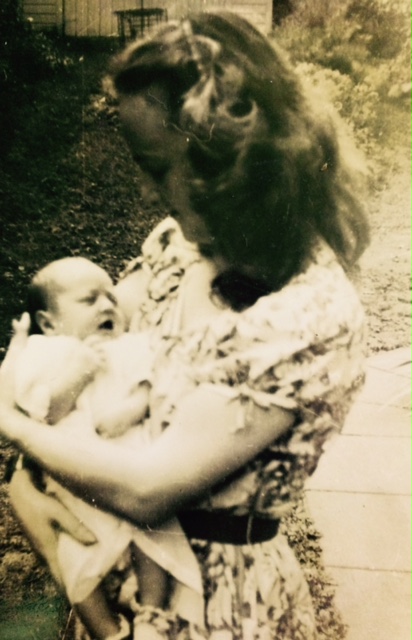 Years ago, they cared for us. They walked the floor or rocked us when we were fretful as infants. They encouraged us to take our first steps, guided our hands when we first learned to write our own names and sent us off to our first day of school with hopes that we would do well. They cheered us when we succeeded and comforted us when we failed. They were our staunchest supporters in every undertaking. Eventually they sent us off to college or out into the working world, knowing their lives as parents of growing kids were over and a new chapter had begun. And still they were there to support us. Dads walked daughters down the aisle or counseled sons on how to be a good husband when we married. They pitched in with child care and advice when we became parents. They reveled in their roles as grandparents and passed on stories and advice to a whole new generation of youngsters. Years ago, they cared for us. They walked the floor or rocked us when we were fretful as infants. They encouraged us to take our first steps, guided our hands when we first learned to write our own names and sent us off to our first day of school with hopes that we would do well. They cheered us when we succeeded and comforted us when we failed. They were our staunchest supporters in every undertaking. Eventually they sent us off to college or out into the working world, knowing their lives as parents of growing kids were over and a new chapter had begun. And still they were there to support us. Dads walked daughters down the aisle or counseled sons on how to be a good husband when we married. They pitched in with child care and advice when we became parents. They reveled in their roles as grandparents and passed on stories and advice to a whole new generation of youngsters.
(My mom with me - a long time ago)
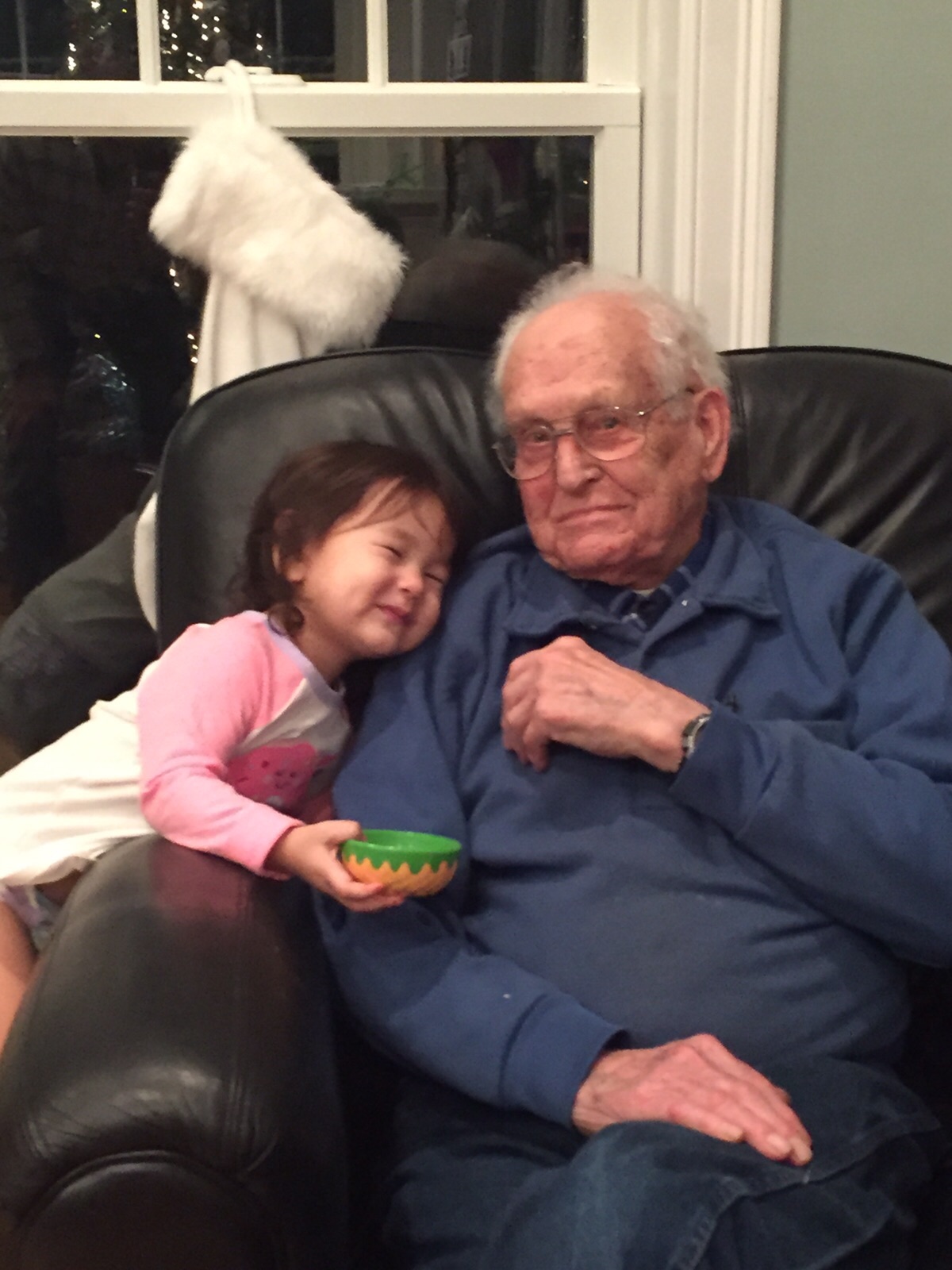
But now they are aging and sometimes their bodies fail them. Things they once did with ease become harder and harder each day. They can’t wrestle with their great grandchildren, as much as they might wish they could and it’s the youngsters who now wait on them.
Eventually the time comes for us to take over their life decisions and it’s not easy. It’s especially not easy if they haven’t come to terms with their diminished capacities. My mom had Alzheimer’s and eventually had to move to an Assisted Care facility. She had always been an outgoing woman who loved her world and the people in it, and she didn’t really understand why she could no longer live with her beloved “Johnny.” We, her kids, knew it was because the stress was aging him too fast and his health was threatened. In actuality, she thrived in the new surroundings where there were activities and people to interact with all the time, but still she pined for her love. By the time she died she no longer knew who I was when I came to visit, but she still recognized that I was an important part of her life and her smile when she saw me lit up the room. We were blessed that she passed away before the disease robbed her of all enjoyment of her life. (My dad with his great granddaughter Anna)
And now it’s my dad who requires us to step in and help with his care. He’s always been an active man and at 96 was still mowing his own lawn and puttering in his shop creating various projects from wood, all skillfully and wonderfully made. Then, in July, he had a bad fall. I just recently read that falls are the leading cause of death in the elderly – something I’d not known before. And his was a serious fall. He broke his pelvis and two vertebrae. He was in an unyielding neck brace and unable to put any weight on his feet for three months and by the time he was cleared to remove the brace and start learning to walk again, he’d lost a lot. We still believed he’d go home again, though. He wasn’t like other 96 year olds. He was strong and capable – he’d go to rehab and get better. Or so we hoped.
But by mid November that hope had begun to fade. Our most recent meeting with the staff at the excellent nursing and retirement community he’d been fortunate to find a bed in dashed our hopes completely. He can’t be on his own and probably won’t ever be so again. So, my brother flew in from  Kansas and I flew up from Florida to join my sister to help convince him this is his new normal. He’s forgetful and is often happy to have us take over tasks like his banking and taxes, but now we have to take over all of his affairs. Fortunately he’s okay with that. It could be worse. But it’s hard to see the man you once thought was a god reduced to being so dependent on you and his other care givers. The man who once carried me on his shoulders now needs me to carry on his affairs for him. He has ceded those responsibilities with grace, but it’s still hard. Kansas and I flew up from Florida to join my sister to help convince him this is his new normal. He’s forgetful and is often happy to have us take over tasks like his banking and taxes, but now we have to take over all of his affairs. Fortunately he’s okay with that. It could be worse. But it’s hard to see the man you once thought was a god reduced to being so dependent on you and his other care givers. The man who once carried me on his shoulders now needs me to carry on his affairs for him. He has ceded those responsibilities with grace, but it’s still hard.
In the next few months there will be much I have to do on his behalf, but then, no matter how big those tasks are, no matter how hard they might be, they won’t be a fraction of the care he once gave me. And I am blessed that I still have him with me for at least a little while longer.
Saturday, November 19 2016
This month our Round Robin Blog Topic is: How does wording choice develop a story's character? How do you use and select your words?
 Suggested by Dr. Bob: She had to be the sexiest-looking 42-year-old on the planet, the best that money could buy.-- Is this a positive or a negative when you read a book? How can such statements be used to describe character? Suggested by Dr. Bob: She had to be the sexiest-looking 42-year-old on the planet, the best that money could buy.-- Is this a positive or a negative when you read a book? How can such statements be used to describe character?
This is the kind of description I like best. It tells you a lot about that character without the reader even thinking about it. She’s sexy, but not young. Some of which is about her age, but sexy isn’t always about perfect breasts and a shapely body. It’s about the way a woman holds herself and moves. Sexy can also imply confidence. So from this brief description we get the idea this woman is confident about her appeal to the opposite sex. And we know she’s a hooker. An expensive one. Which might tell you something about her lifestyle and expectations. Perhaps I’m reading too much into it, but if I was, I’d be swiftly disabused of that as I read on. But that one short sentence sets me up to admire her at least, even if I don’t approve of her career choices. I like descriptions that give me a sneak peek into what the character is going to be like.
 An author can spend a lot of words describing a character the first time they appear in a book that really doesn’t tell you anything more than you would know if you passed that person on the street. An example from my own book, Trusting Will, reads like this: An author can spend a lot of words describing a character the first time they appear in a book that really doesn’t tell you anything more than you would know if you passed that person on the street. An example from my own book, Trusting Will, reads like this:
“The woman, who had to be Sam’s mother, was gorgeous. Stunningly gorgeous. If Will had been wearing a hat, he’d have been inclined to sweep it off his head and offer a totally uncharacteristic bow. As it was he struggled not to gawk. The long wavy blonde mane and striking whiskey-colored eyes looked vaguely familiar, but he couldn’t believe he’d have forgotten her if he’d ever met her before.”
As nicely put as I thought it when I wrote those words, the introduction to Bree Reagan tells the reader nothing about her character. And maybe that’s okay. Maybe we’re more interested in Will’s reaction to her at this point in the story anyway. But still – we really don’t know anything about Bree from this description except that she’s pretty. And we have little hint about who Will is either, except a healthy, heterosexual male.
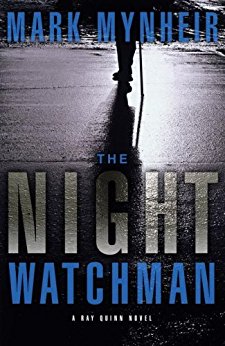 By contrast, from The Night Watchman by Mark Mynheir: By contrast, from The Night Watchman by Mark Mynheir:
“The Guy seemed at ease with the weapon and wasn’t holding it like a novice or a gang member.” tells us nothing about what the man looked like, his height, build, coloring etc, but what does it tell us? Mark’s protagonist Ray Quinn had once been a tough, quick-witted Orlando homicide detective and since we’re in his point of view, this brief description of the man who held Ray up tells us something important about the assailant. Given Ray’s background his assessment of the way the man held the gun is important. He’s not a gang member and he’s not a novice. So what kind of person would hold up a seriously injured man? Was it someone with a score to settle? Someone hired to take Ray out? Or perhaps warn him off something? And just what is his connection to the plot? We don’t know any of those things, but we do know if he personally isn’t important, his appearance here is. And it’s threatening in some way. In the very next paragraph, Ray tells us that he left this detail out of his statement to the police. In part because something he’s investigating might involve a cop gone bad. Adding that detail to the way the man held the gun and the fact that Ray didn’t report that fact leads us to surmise this little detail will be key later in the plot.
In the introductory scene from Loving Meg, book two in my Camerons of Tide’s Way series, I begin in my heroine’s point of view with a little more information that still leads more to character and hints at the plot.
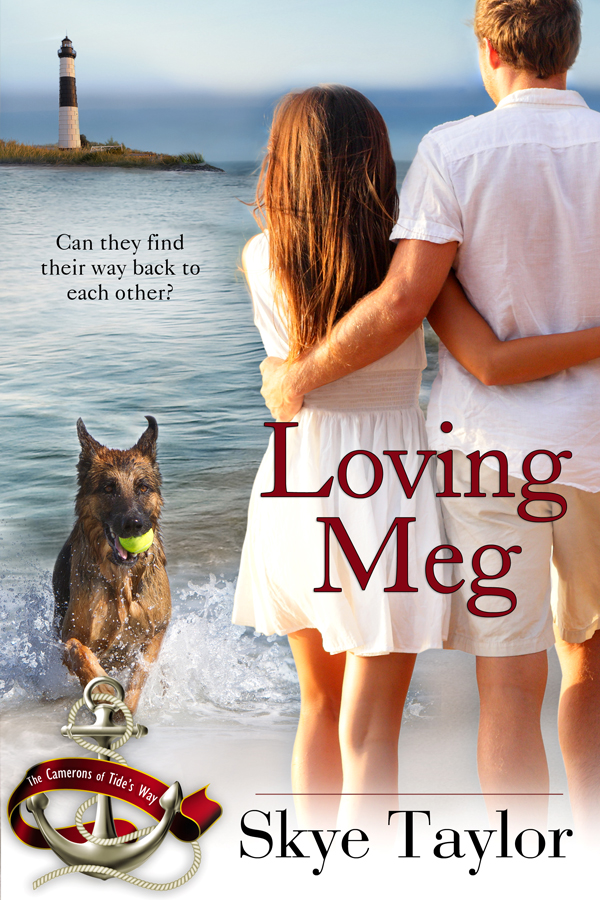 “All those days ago when she’d been walking the other way with tears brimming in her eyes, she’d been naïve. Committed, eager, and incredibly naïve. She wasn’t the same woman who’d said goodbye to Ben that day. She was no longer innocent. And her idealism had fled in the face of the things she’d seen. And done. Would Ben notice? Would he see it in her eyes? Would he feel it in her touch? Would he still love her if he knew the whole of it?” “All those days ago when she’d been walking the other way with tears brimming in her eyes, she’d been naïve. Committed, eager, and incredibly naïve. She wasn’t the same woman who’d said goodbye to Ben that day. She was no longer innocent. And her idealism had fled in the face of the things she’d seen. And done. Would Ben notice? Would he see it in her eyes? Would he feel it in her touch? Would he still love her if he knew the whole of it?”
Meg Cameron is a Marine lieutenant just returned from a year in a war zone. She is already haunted by her experience and we get the idea she isn’t all that happy about the person she has become. She’s fearful that her husband might not love her if he knew everything she’s done, or thought. “She’s not the woman he fell in love with.” Shortly after this we see Meg from Ben’s eyes. We get her physical description, but the more importantly we learn Ben is just relieved and happy to have her home with no clue that things won’t be the same. “Meg was back. Whole and unharmed. And as beautiful as memory had promised. He couldn’t wait to hold her again. He couldn’t wait to kiss her and feel her arms circle tight around his neck. To feel her lips returning his hunger and longing.” Those two very different descriptions of Meg tell you a lot about Meg and something of Ben, but more than that, they set up the whole conflict of the story.
Here are a few more interesting introductions to a key character in a book. I’ll let you decide what they might tell you.
The past swaggered through the door of Darlton’s Bar & Grille in cowboy boots.” From Deployed by Mel Odom.
“He was tall and young, and when he looked up and saw her, he took off his hat.” From High Tide at Noon by Elizabeth Ogilvie
“He was a nerdy-looking guy with glasses tied around his neck, but he had a set of shoulders on him. Forearms too.” From Deep Shadow by Randy Wayne White
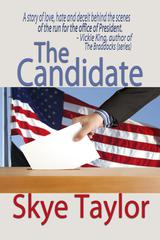 And lastly, two different characters from my book, The Candidate as they arrive at a debate event. There is some physical description, but it’s the other information these introductions tell the reader that helps the reader form an idea of the character of these two very different men and how they might impact the plot: And lastly, two different characters from my book, The Candidate as they arrive at a debate event. There is some physical description, but it’s the other information these introductions tell the reader that helps the reader form an idea of the character of these two very different men and how they might impact the plot:
“Rolly Miller certainly looked the part. Slender and distinguished, with steel-gray eyes and hair to match. He carried himself like a winner. He never simply arrived—he made an entrance. He was gracious in a way most men running for the highest office in the country hadn’t been for generations.” And—“Blair Cabot was a very different adversary. Anyone in his presence felt the power of his personality. Another man who got things done. His sturdy, shorter-than-average stature didn’t command the instant impression of competence Roland Miller did. But Cabot was far more ruthless.”
What kind of introductions do you like for the characters in a book you’ve just picked up to read? Do you want to see how they’re dressed or if they are attractive or not? Or do you, like me, favor having a hint at the type of character they are? Hop on over and check out what some of these other authors think.

Margaret Fieland https://margaretfieland.wordpress.com/category/blog/
Beverley Bateman http://beverleybateman.blogspot.ca/
Dr. Bob Rich http://wp.me/p3Xihq-OB
Rachael Kosinski http://rachaelkosinski.weebly.com/
Judith Copek http://lynx-sis.blogspot.com/
Helena Fairfax http://www.helenafairfax.com
Rhobin Courtright http://www.rhobinleecourtright.com
A.J. Maguire https://ajmaguire.wordpress.com/
Marci Baun http://www.marcibaun.com/blog/
Victoria Chatham http://victoriachatham.blogspot.ca
|